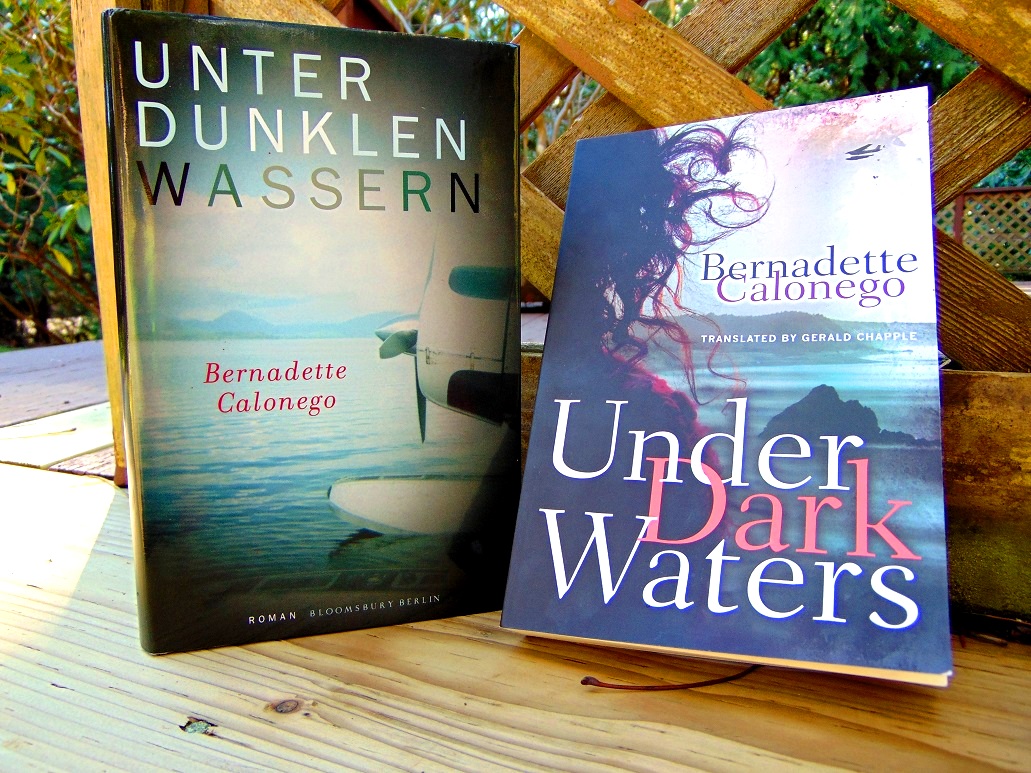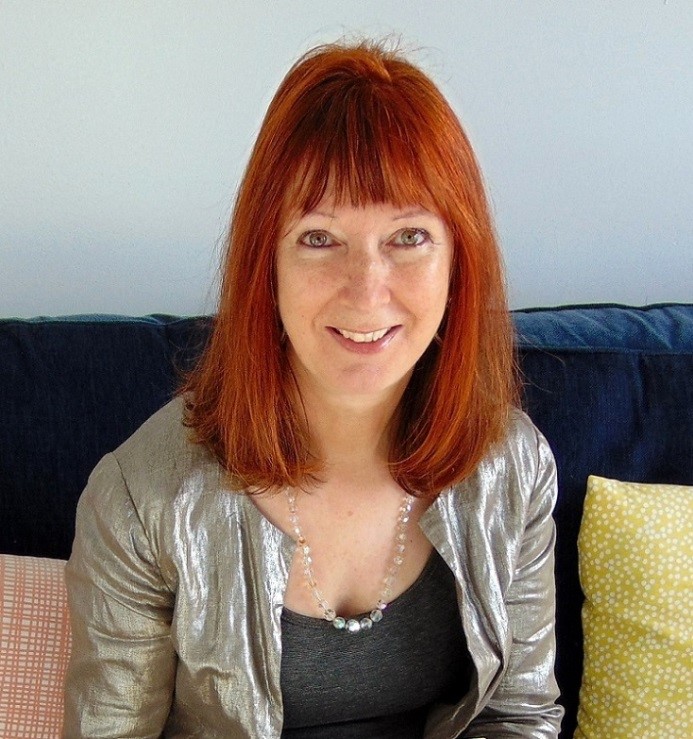
On cliffhangers and ‚Swenglish‘
Bernadette Calonego is a Swiss-born journalist and novelist living near Vancouver, BC. Both of her professions have taken her all over Canada, including to the remote regions of the Canadian arctic. SoGerman talked to her about the recipe for a suspenseful crime novel, the blessings of a good translator, and how to keep “Swenglish” (a mix of English, German and Swiss) out of her writing.
You went from being a foreign correspondent to a writer of crime novels. How did that happen?
I think it makes a lot of sense because as a journalist, I have to do a lot of research: I interview people, travel to places where things are happening, look behind the façade, and question how things ended up the way they are now. Sometimes I also get in direct contact with criminal cases, like with the serial killer Robert Pickton from Vancouver, about whom I wrote several pieces.
To be honest, I can’t imagine writing entirely “normal novels”. I think crime novels suit me because there is a clear plot: there is a search for a murderer and the story progresses quite linearly from the point where the crime is committed, to where it’s solved. And in between I leave clues, be they misleading or actual leads, but not in a way that the reader immediately knows who committed the crime.
Plus, crime novels normally end with the exposure of the bad guy(s), unlike in journalism…
Yes, in real life, not every murder is solved. As the saying goes, “good news is no news”, which means that as a journalist, one mainly works on stories with a slightly negative undertone. Of course I also try to find stories that are more positive. Those can sell newspapers, too – for example how Canada can act as an example for countries such as Germany, how Canada treats its immigrants, and how the country handles the current immigration wave. Those topics generally attract wide interest in Germany. But I agree with you when you say that the reason why many people read crime novels, and why the genre is so successful, is because in the end the murderer gets caught and thrown into jail. There’s some kind of justice – usually it’s clear who the good and the bad guys are, and in the end the world is made right again.
How long does it take you to write a book?
On average about one year because I also have to do research. I travel to the places where my novel takes place, which needs additional time, and I also work as a journalist.
All this research is probably quite expensive, considering that you visit all the settings for your novels…
Yes, but it’s manageable. Sometimes I can combine research for my novels with my work as a journalist. I once wrote about float planes on Canada’s West Coast, for example, and they later played a role in my crime novel “Under Dark Waters”. In this respect journalism serves as a source of inspiration for my crime stories.
Are there any stories that you’ve always wanted to write about, as a journalist or as an author?
I already wrote one of them, namely the life of Else Seel. She was an intellectual and poet in 1930ies Berlin who immigrated to Canada as some kind of “mail order bride”. She’d read an advertisement by a Canadian trapper of German origin in a German newspaper and answered it. She then travelled to Vancouver and met him here for the first time. On the second day, she got married and moved into the wilderness with him. This very isolated life in a small log cabin wasn’t easy for her – in the beginning, she didn’t even know how to start a fire, her husband was away trapping for months at a time, and she was alone. It really was quite the challenge. But I thought it was an interesting setup, an intellectual living in the wilderness with a trapper. I incorporated her life story into my novel “Under Dark Waters”.
Why is it that all your amateur sleuths are female?
There used to be all those crime novels with male detectives who had a drinking problem, smoked a lot, drank coffee by the liter, and were grumpy all the time, and I thought, why not women? They can be just as good at solving mysteries. I think it’s important for today’s time that you have brave women in crime novels. My heroines aren’t always fearless, they also have their weaknesses sometimes, but they’re interesting, fascinating women. They’re not professional detectives but work in other professions, such as photography or law. I can imagine that other women can identify with my heroines, and I think that there’s a market for that.
Reviews on your books say that you incorporate quite a few cliffhangers into your novels. Why is that?
I use cliffhangers intentionally in order to build up suspense and make my audience continue reading. On top of that one also has to get readers thinking for themselves about what could have happened, or who committed the crime. This guesswork is part of the game. Besides, I like cliffhangers myself. I read many crime novels and thrillers, and I draw inspiration from those. I think you can learn a lot through reading. I’ve never attended a Creative Writing class, I learned everything through reading.

Your books were also translated into English. As an author, do you get a say in the translation process?
On that question I can only speak for myself. I have a good grasp of English, so I know exactly if something isn’t right. My translator Gerald Chapple invited me to cooperate with him, and it works very well. He sends me his translation, we discuss it, I accept his suggestions and he accepts mine. I can’t imagine what it’s like to have your book translated and the translator doesn’t have any contact with the author at all. But in my case, I got Gerald Chapple as my translator, and I think that I got incredibly lucky with him.
After 18 years in Canada, is it hard to keep German and English apart?
I sometimes use English expressions that I literally translate into German by accident because I’ve gotten so used to them that they slip into German. But even when I talk to Germans who live in Germany I notice that they use so many English words, it’s astonishing. Maybe there are also some distinctly Swiss expressions in my books, besides the English ones, that my editor then edits out. But apparently it’s not as bad yet as I sometimes fear it is. I guess one doesn’t always realize when it happens, but since I still read in German quite a lot, and since I`m trying to be careful about it, it’s still within reasonable limits.
However I’ve been noticing about German crime novels that certain techniques, phrases or methods that were mainly used by Anglophone authors increasingly show up in German books. The pacing is a bit quicker and the tone a bit more direct, and maybe also gorier. In my opinion that’s where you can see the English influence seeping in the most.
When you go to Switzerland nowadays, can you see the difference to the time when you left?
In my opinion, Switzerland is moving in a good direction. Maybe I can only see the positive sides, but it’s exciting to live in a country that’s surrounded by four or five others, with all of the cultural exchange that this vicinity brings. Here in Canada I can feel that the North American influence is very strong. It’s even a bit one-dimensional. Europe on the other hand is very diverse, and you can feel that in the cities, like in Zurich with its distinct culture and streetscape, although of course Vancouver is very diverse too. A good English word to describe Zurich would be cutting edge. Vancouver is still more laid-back.
Of course there are always things I miss about Switzerland when I’m in Canada, and vice versa, but as a friend of mine said the other day: the grass is always greener on the other side of the fence. And if you only visit for a few weeks at a time, you most likely only see what you want to see. My Swiss friends always say that the landscape in Switzerland is spoiled because there are buildings everywhere, and new ones still keep getting built, but when I last visited Switzerland I still found it to be nice and green, and not at all as terrible as they’d described it.
Is there any other place where you’d like to live one day?
There are two places that I’d like to visit, New Zealand and Australia. Australia because it’s a bit like a hotter version of Canada. I might be wrong about that, but that’s the image I have in my mind. And New Zealand’s nature is beautiful, of course, which makes it a bit similar to Canada. That’s one of the things I like so much about Canada: its breathtaking nature. The reason why I haven’t travelled to New Zealand and Australia yet is that there are still so many regions in Canada that I haven’t seen, but that I badly want to see in the future. And when the time comes again for me to decide where I want to go, it always ends up being Canada.
Which other places in Canada do you want to visit?
I don’t know Manitoba and Saskatchewan all that well yet. It’s a shame that one always ends up neglecting the Prairie Provinces. I also haven’t seen much of New Brunswick yet, so I would like to travel there. Northern Ontario is still missing on my list, too. Really, there are too many places.
So we can expect that one of your future books will be set there?
The next one – should I reveal that now? – will probably be set in Labrador, and after that we’ll see. I normally don’t think past the next book.